
When does the website conversion process start? After someone lands on your site, right?
Actually, no. The conversion process starts long before that.
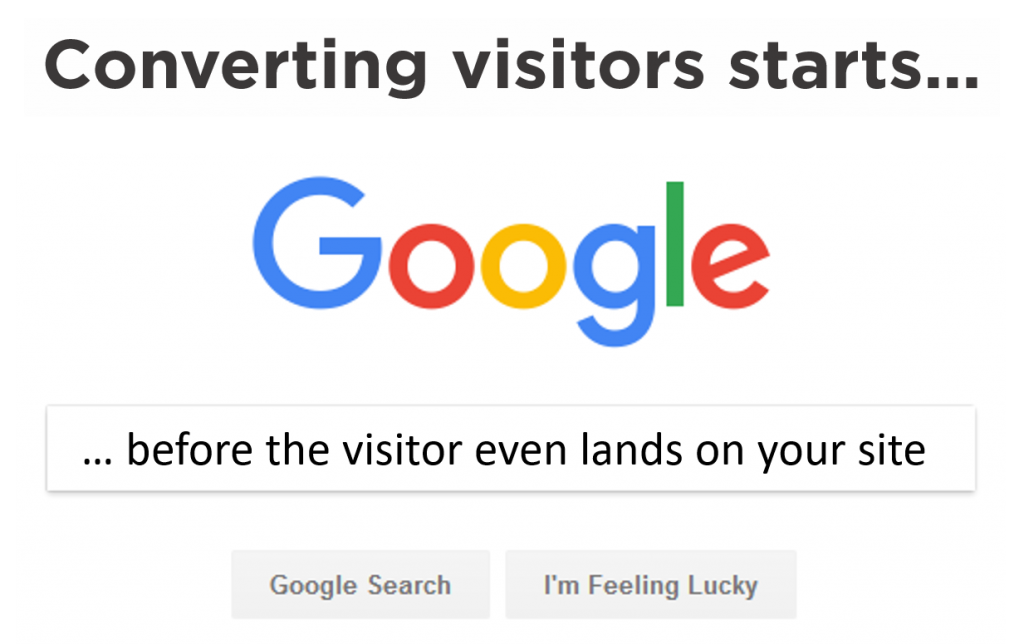
Why? Because conversion optimization is about more than turning traffic into customers, it’s about turning targeted traffic into customers.
That’s a small, but crucial, detail.
What’s the danger of “untargeted” traffic?
Well, for one, it’s a huge waste of time and resources. And two, if the search engines are paying attention (and they are), the untargeted traffic leaving your site can have a negative impact on your search engine rankings.
Untargeted traffic is lose-lose.
Targeted traffic is win-win
Targeted traffic starts with targeted keywords
Keyword research is nothing new to the process of search engine optimization. In fact, keyword research is where SEO all started. But many don’t realize that conversion optimization starts with keyword research, too. This is how we understand what searchers want and what (key)words resonate with their interests.
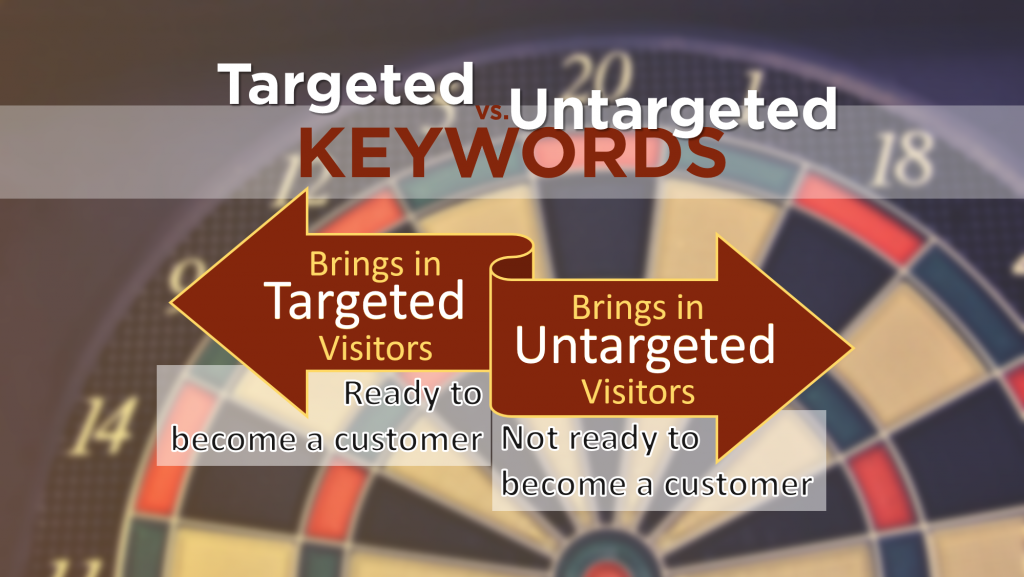
If you want targeted traffic, you have to find and optimize for targeted keywords. Choose the right keywords, and you’ll bring in the right audience. Choose the wrong keywords, and you’re just consuming bandwidth.
Let’s do a thought experiment. I’m going to throw out a word, and I want you to close your eyes and picture an image in your head.
Ready?

Before you read any farther, make sure you have a picture of a motorcycle in your head. If you don’t, get one quick. No cheating!
Did the image in your head look like any one of these:

All four images above represent a motorcycle, but each one can be represented by words other than “motorcycle”.
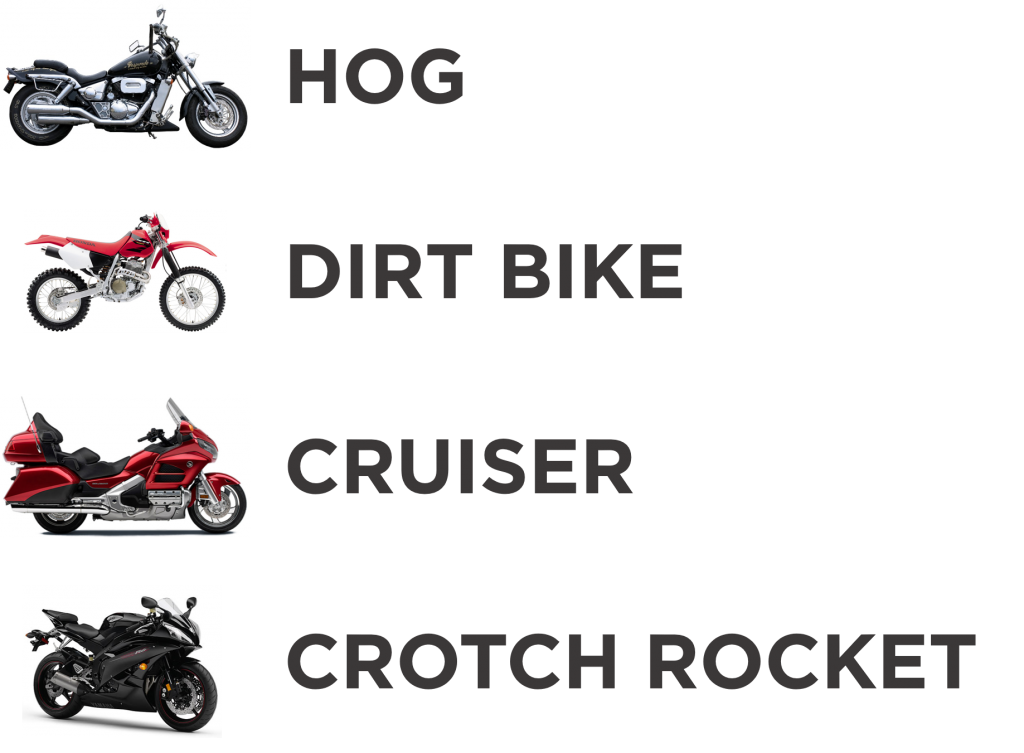
And each of these keywords targets completely different type of person:
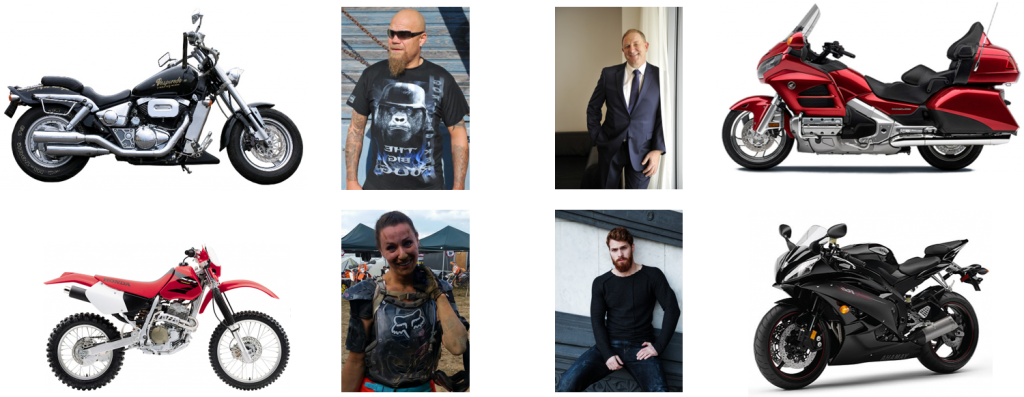
Why is this important?
Because the term “motorcycle” isn’t really all that specific. We know exactly what the word “motorcycle” means, but it won’t draw targeted visitors.
Many argue that untargeted traffic does bring in sales, and that can be true. But untargeted keyword phrases are much harder to rank for than targeted phrases, require a lot more resources, and the conversion rates are far lower.
Make that: Untargeted traffic is lose-lose-lose.
Running the Numbers
Let’s say that the terms “motorcycle” and “motorcycles” get a million searches per day. That sounds like a lot. But assuming that you were able to get a 100% click-through rate (a big assumption), what would the conversion rate on that be? Probably somewhere in the .1% range.

So that’s a thousand conversions per day. Sounds great, right? But let’s remember that the time, energy, and effort to get that traffic is pretty substantial. You’ll be paying for that for a long time to come.
But what if we narrowed our keywords a bit? We find keywords with a lot less search volume, but we get a bigger conversion rate for them.
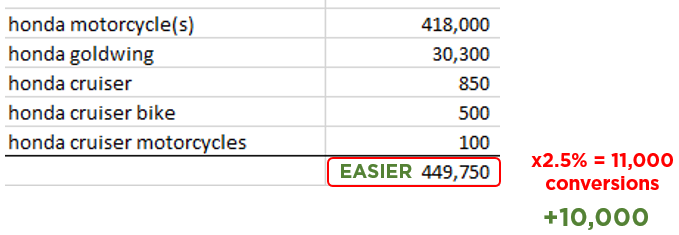
Not only does it take a lot less investment to rank for these “lesser” keywords, but the higher conversion rate gets us a net increase of 10K daily conversions. Holy smokes!
See what a difference targeted keywords can make?
But remember, we made a huge assumption that you’d get a 100% click-through rate. We know that’s not gonna happen, but there are things you can do to entice visitors to click on your site rather than a competitor’s.
Entice the click
The first rule of competing for rankings is don’t compete for rankings. Search engines are not your competition, nor are the ranking positions.
I like to think of search engine positions as the trophy for a job well done. It’s not a race to the trophy, it’s a race to the finish line to earn the trophy. And that’s a huge difference. The trophy comes after the competition.
So if you’re not competing for rankings, what are you competing for?
Clicks!
